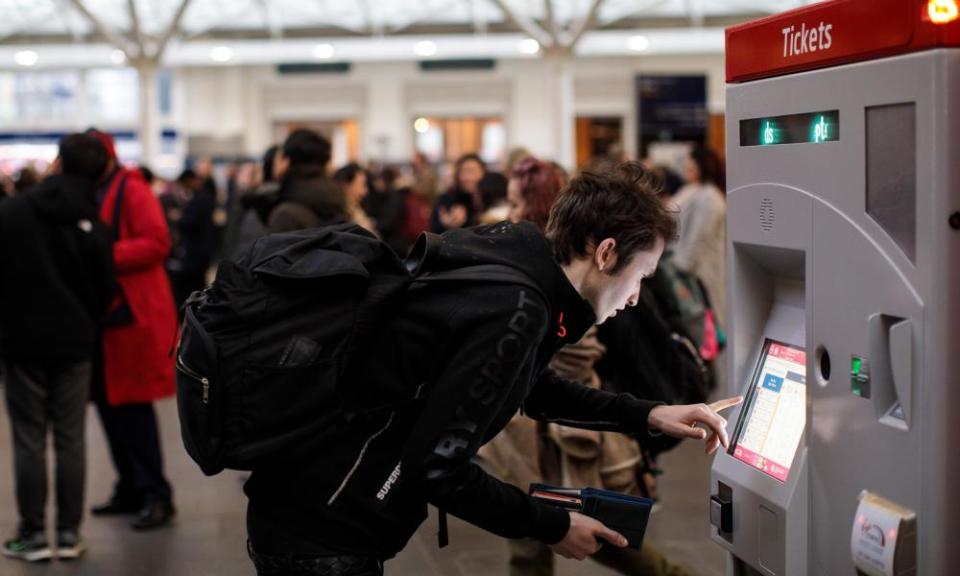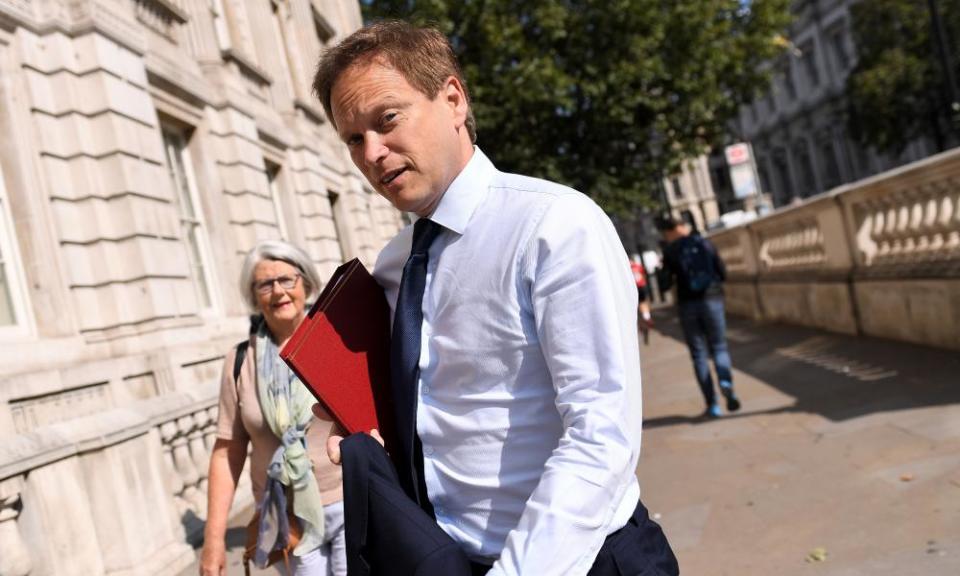Travellers pay price as rail policy runs out of control

Many commuters will have been on holiday, and off the railways, when large parts of the network were shut down in a power blackout nine days ago. But they were in the dark, or powerless, in other matters too. Last week the government announced a perplexing decision for Britain’s major intercity route, the west coast mainline, on the same day passengers were digesting news of another rise in fare prices.
The latest 2.8% rise compounds a decade of increases pinned to the discredited measure of RPI inflation, while earnings have not even matched the lower rate of CPI, leaving commuters’ salaries chugging painfully uphill as ticket prices speed merrily ahead.
None of us likes paying more, say ministers in patronising statements of the kind conspicuously absent when, for example, freezing fuel duty for car drivers. The underlying idea has long been for passengers to shoulder more of the cost of rail, which receives an annual net subsidy of £3.8bn. There is superficial appeal in the argument that the taxpayer should not subsidise a service mainly used by the better-off middle classes – much like libraries or universities. But that risks seeing the poorest priced off the railways first.
Britain’s rail fares may not be the most prohibitively expensive in Europe, as some claim – at least for those with prescience, funds for a season ticket, and wanting a return journey. But the cost for people who need to travel at short notice or fixed times, potentially forfeiting a week’s average take-home pay for an intercity trip feeds the sense of injustice.
Reviews have failed to nail how to get UK rail costs down to the level of Europe’s state railways – although the 2011 McNulty report noted the high profits of rolling stock companies, and generous salaries. The perception of private sector efficiency versus British Rail clunkiness is deeply ingrained – even though polling suggests most people would favour renationalisation, and trains have run up the east coast mainline equally fast under public and private ownership in the past few years.

Whether or not renationalisation could drive down fares – the London-Edinburgh route remains as pricey as any – it might remove the suspicion that passengers are funding an excess of gravy in the privatised trains. On average, dividends from rail account for an average 2.5% of fares – nearly as much as the latest increase. Those annual dollops helped turn the owners of Virgin Rail, Sir Brian Souter and Sir Richard Branson, running trains on a west coast line upgraded and maintained with vast sums of taxpayers’ money, into billionaires.
Why, passengers may question, do the workaday bosses of regional networks get paid multiples of a prime ministerial salary? How much money was carelessly spent on contractors and consultants as Network Rail racked up £40bn in debt? What were the “market forces” that led one part of the rail system, HS2, to pay a salary of £750,000 to switch a senior executive from neighbouring Network Rail? Even train drivers have played off competing networks to net handsome pay deals.
Meanwhile, the franchise system that has underpinned private rail is stricken, and all but declared dead by the former British Airways boss Keith Williams, who is chairing a rail review. That appeared confirmed only two weeks ago when Grant Shapps, the new transport secretary, cancelled the Southeastern franchise competition.
Yet now, with a flourish that suggests the spirit of his predecessor, Chris Grayling, has not yet left the Department for Transport building, Shapps has awarded a potential 15-year contract to run the west coast line – and possibly HS2 trains – to crumbling FirstGroup, on its knees from rail losses elsewhere. Despite Williams being wheeled out to endorse the decision, it is difficult to see any consistent policy. Rail desperately needs to know where it is heading, but instead ministers have blindly laid out track ahead. Wherever this branch leads, it would be little surprise if taxpayers and passengers found themselves picking up a substantial tab at the end.
Stop sitting on the fence over fracking
Sir Jim Ratcliffe, Britain’s billionaire industrialist, is an unlikely thought leader on environmental issues. But the owner of chemicals giant Ineos may be right about the government’s shale gas policies. It’s decision time for ministers.
Ratcliffe this year challenged ministers to change their stance on fracking, or just shut down the nascent industry. He had harboured hopes of Ineos emerging as the UK’s biggest shale gas company, but his ambition to tap the gas trapped beneath the Earth’s surface has been frustrated by local opposition and government limits on earthquakes caused by the fracking process.
Minister may have been listening, but they are still using fracking rules as a political football. Last week business ministers used terms that were slippery even by Whitehall standards to offer frackers fresh hope while doing nothing at all.
Government officials hinted that ministers would “consider” a review of earthquake rules pending analysis of data from Lancashire, where Cuadrilla is drilling, by the industry regulator. To date the government has insisted that frackers should blast a mix of chemicals and sand into the earth’s fissures – thus releasing trapped gas – without triggering so much as an imperceptible tremor. It’s enough to bring the industry to a halt, without ever having to ban the controversial process.
The “new position” is not an overt promise to loosen the limits. The government is fully aware of the rising public opposition to shale, and the statement was a flimsy attempt to appease business.
It’s time for ministers to face facts: the government’s own public attitudes survey has shown support for fracking fall toat record lows. Meanwhile, support for renewable energy and action to tackle the climate agenda has climbed the public agenda in the past year. If ministers are not going to release the shackles on fracking, they should take Ratcliffe at his word: shut down shale.
Sports Direct can even make auditors exciting
A tip of the hat to Sports Direct boss Mike Ashley, who can even turn hiring an auditor into a major event. Last week, shares in the sportswear giant fell further – they are down more than 40% over the past year – after an outdated line in its annual report gave false hope that Grant Thornton had decided to stay on as its auditor. But no, the accountancy firm had not had a change of heart, and the retailer is now racing to hire a replacement before next month’s annual meeting or face delisting from the stock exchange.
The Big Four – Deloitte, PwC, KPMG and EY – have all told Sports Direct they don’t want its business.
The fact is, the usually rather mundane world of auditing has been blown apart by a run of corporate car crashes, from construction giant Carillion to cafe chain Patisserie Valerie, that has resulted in far greater scrutiny of the role the industry plays in assessing a company’s financial health. As a result, big auditors are getting far more selective about who they will work for, while smaller firms are worried about being exposed to hefty fines and legal action if they make a mistake.
We know Ashley is a handful. A court was told he once vomited in a fireplace after a business function turned into an extreme drinking contest and expressed boredom in meetings by taking naps on the floor. He has settled business bills with games of spoof, and set up deals to pay family members millions.
In a much-delayed stock exchange update last month, he called for business chiefs to submit to drugs tests and revealed an unexpected €674m Belgian tax bill that, evidently, had been unknown to the auditors until just a few hours before the statement was due.
Sports Direct has now asked the government for guidance because it has to have an auditor to continue as a listed business. So it is over to business secretary Andrea Leadsom to sort out Ashley’s books.

 Yahoo Finance
Yahoo Finance 